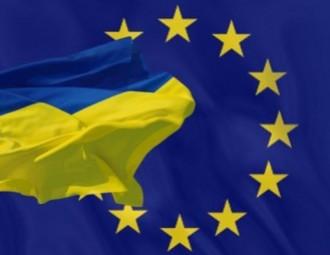Verkhovna Rada voted for cease-fire. Digest of current situation in Ukraine

While anti-terroristic operation is voided, the number of deaths reaches 75 people. EU Commissioners stayed for over-night talks after the meeting with the opposition and the authorities in Kiev.
The parliament of Ukraine on Thursday, February 20, voted to stop the counter-terrorism operation in the country and return all law enforcement units to their permanent bases. The resolution passed by the parliament also calls for releasing all detained persons and prohibits police from blocking roads.
Yuri Miroshnichenko, Ukrainian President Viktor Yanukovich’s permanent representative in the parliament, said the main task was to stop the bloodshed in the country: “The first and foremost task we are facing is to stop the bloodshed. This is why the president held meetings and spent hours consulting with our colleagues from the European Union. This is why he invited opposition leaders to a meeting”, ITAR-TASS quotes him saying.
Meanwhile, the foreign ministers of Poland, Germany and France have achieved progress at the talks with the opposition and the authorities in Kiev. “After the talks with the opposition we go back to President Yanukovich to help him at the talks. Progress has been achieved but important disagreements remain,” Polish Foreign Minister Radoslaw Sikorski said.
The Polish, German and French ministers will remain in Kiev for overnight talks. They were sent to the Ukrainian capital on a diplomatic mission by Catherine Ashton, the High Representative of the European Union for Foreign Affairs and Security Policy. They had a four-hour meeting with Yanukovich and then conferred with opposition leaders.
As “EuroBelarus” Information Service has earlier reported, targeted sanctions against persons responsible for the outburst of violence and people’s deaths in Ukraine can be put in force starting from February 21. It also became known that an EU ministerial gathering in Brussels decided to freeze the officials’ financial accounts. According to Reuters quoting Italian Foreign Minister Emma Bonino, it has made a decision to impose restrictions on the issuance of travel visas to the Ukrainian officials, whom it deems responsible for the use of violence in Ukraine.
An EU ministerial gathering in Brussels also decided to freeze the officials’ financial accounts, should the latter be tracked down in the West. In addition to this, the EU countries supported the introduction of an embargo on the supplies of weaponry, military hardware and ‘police antiriot gear’ to Ukraine.
Earlier about the end of negotiations between Victor Yanukovich and Foreign Ministers of Poland, Germany and France wrote spokesperson for the Polish Foreign Minister Marcin Wojciechowski on his account in Twitter. “The end of negotiations of the Foreign Ministers of Poland, France and Germany with President V. Yanukovich. The Ministers are heading to the Mission of the European Commission in Kyiv”, - he wrote. First the Ministers refused to give any comments to journalists.
According to the Ukraine’s Ministry of Public Health, on Thursday, February 20, death toll in Kiev riots reached 75 people. As many as 571 people turned for medical aid, 363 of them were taken to hospitals. As dw.de recalls, despite an agreed truce between Ukraine's government and the opposition, clashes between demonstrators and riot police erupt again and again.
-
03.01
-
07.10
-
22.09
-
17.08
-
12.08
-
30.09










































